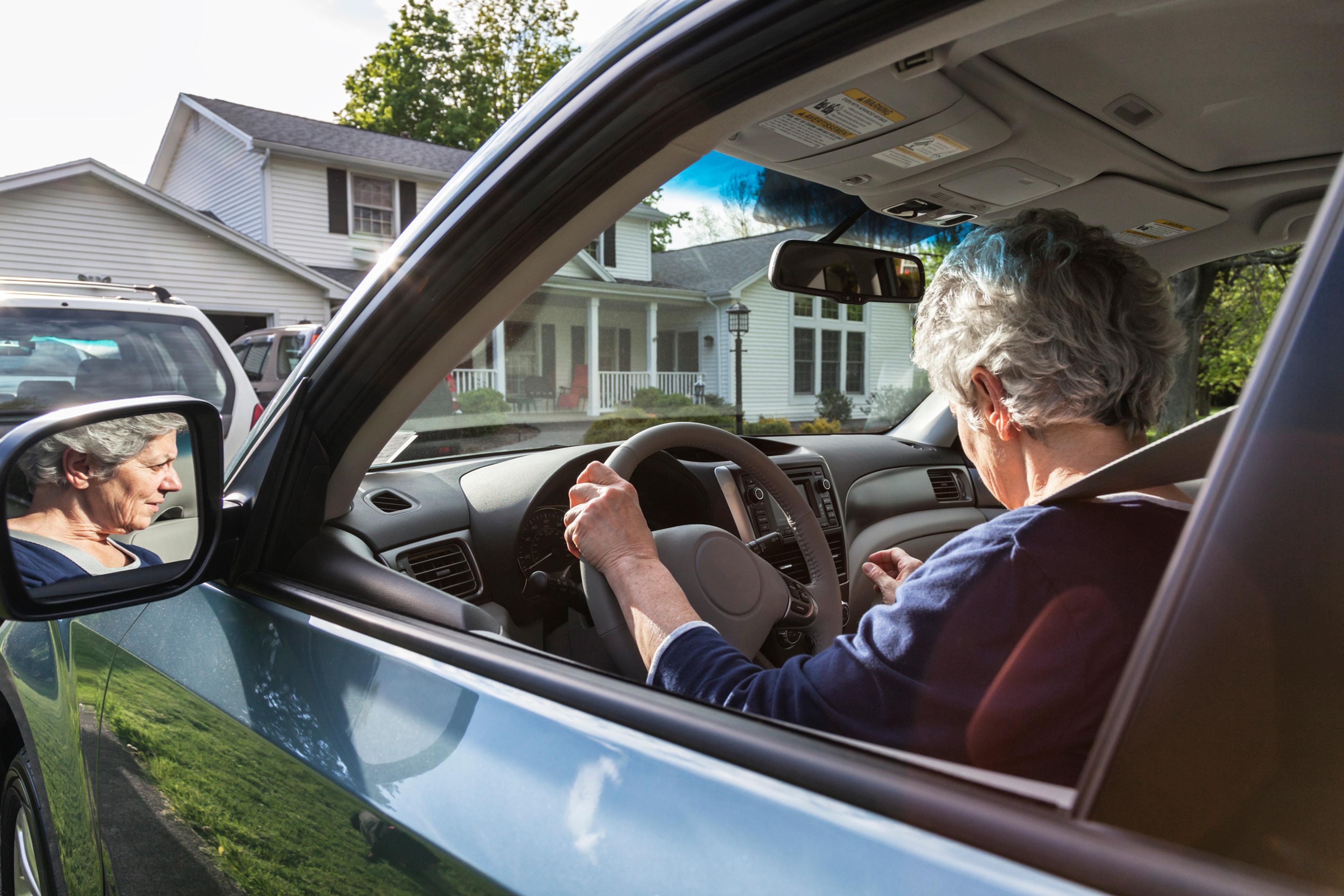How to Discuss Unsafe Driving with Older Adults

Blue Daily
| 3 min read

Drivers age 65 and older made up 20% of all fatal crashes in 2022, according to the National Highway Traffic Safety Administration (NHTSA).
Fatal crash rates increase considerably in drivers age 70 and older and peak among drivers 85 and older.
Aging affects vision, reaction time, physical ability and some medications may impair older drivers. These factors can lead to the need for family members to discuss driving and independence with their older loved ones. Here are common factors in age-related impaired driving and how to discuss unsafe driving with older adults.
Warning signs that an older adult should stop driving
Common age-related symptoms that can lead to impaired driving include:
- Difficulty seeing lanes or reading road signs
- Displaying a slow reaction time
- Difficulty concentrating or not paying attention to other vehicles while driving
- Getting lost on familiar roads, which is also a sign of Alzheimer's disease
- Confusing the brake and the accelerator
- Regularly getting into near or minor accidents
If an older adult has a serious medical condition and/or is on medications that could impair their driving, it is important to discuss the topic with them and their primary care provider (PCP) or specialist. PCPs can help assess vision, hearing and memory concerns that may affect driving.
The following conditions could lead to unsafe driving:
- Alzheimer’s disease
- Arthritis
- Dementia
- Epilepsy
- Hearing loss
- Glaucoma
- Macular degeneration
- Parkinson’s disease
- Stroke
Michigan requires drivers to renew their license every four years. If there is concern about a driver’s safety, a doctor is required to complete a Physician’s Statement of Examination, also known as a DA-4P form.
How to talk with an older adult about driving
If someone has concerns a loved one is no longer able to safely drive, it’s important for everyone to have a conversation about it. Driving with known medical problems and causing a crash can lead to lawsuits in addition to injuries. Consider discussing the topic with a PCP or health care provider for tips and resources. Epilepsy is a special consideration for this type of situation because it can lead to injuries for drivers and others. A person with epilepsy could be held civilly or criminally liable for a vehicle accident.
The conversation may not be easy, and an older loved one may not want to hear it. They may also be resentful toward the person who brought it up and may push back against loss of independence. Someone about to have this conversation could plan what they want to say, what specific concerns they have and bring ideas about how the older adult can get around. Be prepared to state the information calmly, and don’t get pulled into an argument. Listen to any concerns and fears they have around lost independence. If the older adult is upset, consider pausing and returning to the conversation at a later time.
Mobility tips and resources for older adults
Using resources from the American Association of Retired Persons (AARP), U.S. Centers for Disease Control and Prevention (CDC), NHTSA and U.S. Commission on Aging may help in determining whether an older driver is unsafe and how caregivers can help them.
The NHTSA provides online resources such as an overview for older drivers and a self-assessment that helps a driver assess their vision, physical fitness and reaction time. This tool may be useful in discussing whether an older driver should stop driving.
Setting up a rideshare account, locating public transportation, grocery delivery service or organizing a network of people to help transport an older adult may help to alleviate their fears about loss of independence.
Image: Getty Images
Related:





